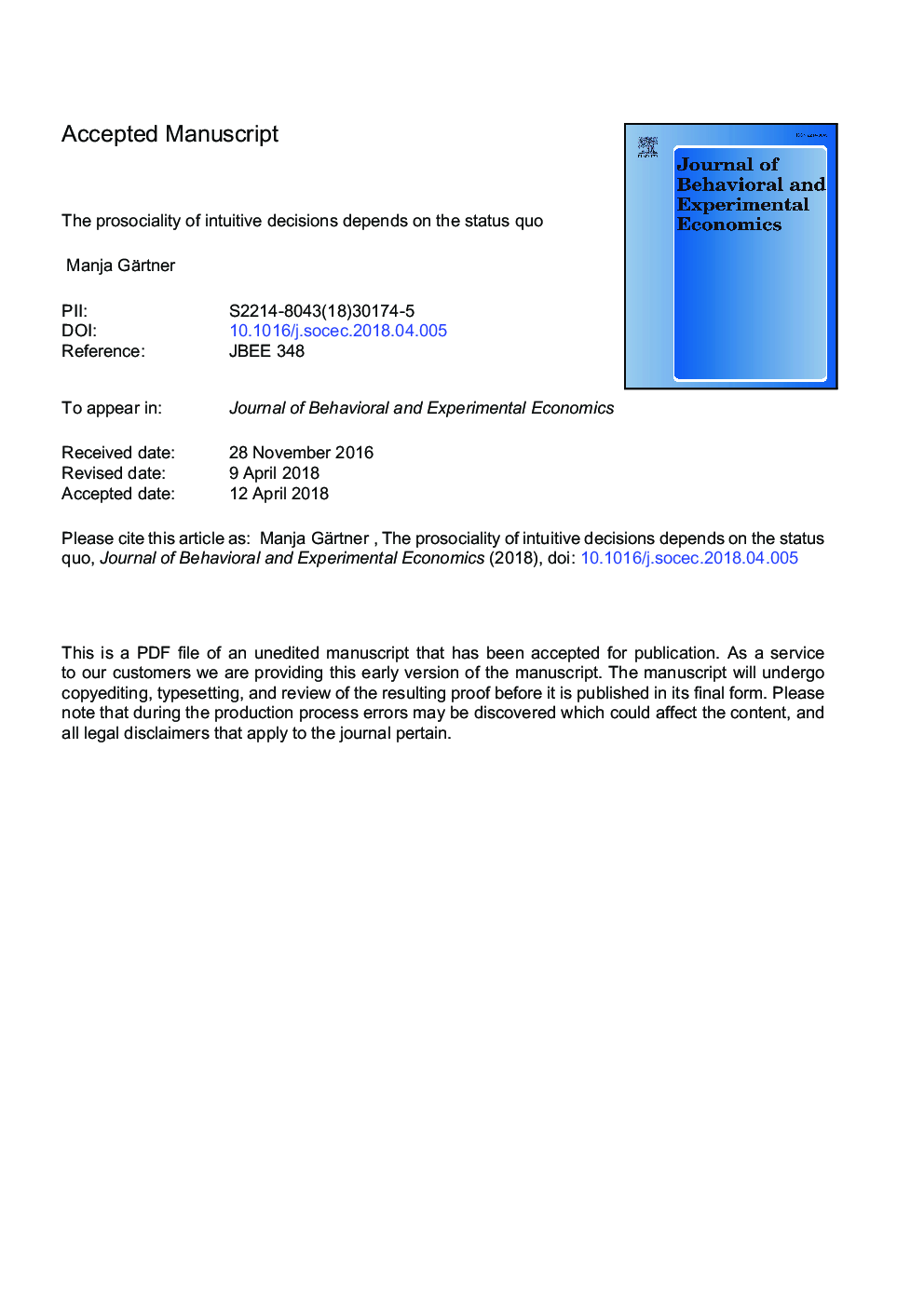| Article ID | Journal | Published Year | Pages | File Type |
|---|---|---|---|---|
| 7241961 | Journal of Behavioral and Experimental Economics | 2018 | 35 Pages |
Abstract
Previous research came to contradictory conclusion about the prosocial nature of intuitive decisions, as compared to deliberate decisions. This paper proposes the prosociality of the status quo allocation as a determinant of the prosociality of intuitive decisions. I present results from two experiments (Nâ¯=â¯1,649) that manipulate time pressure and elicit response times in a binary dictator game. One of the choices is prosocial while the other is pro-self. The status quo option is varied to be equal to the prosocial allocation in one treatment and the selfish allocation in a second treatment. In a third treatment, there is no status quo allocation. Time pressure is found to increase selfishness in treatments without a status quo and has no effect on choices in treatments with a status quo. However, the status quo systematically affects response times. Prosocial choices are made significantly faster than selfish choices under a prosocial status quo and selfish choices are made significantly faster than prosocial choices under a selfish status quo.
Related Topics
Social Sciences and Humanities
Economics, Econometrics and Finance
Economics and Econometrics
Authors
Manja Gärtner,
